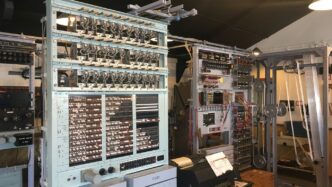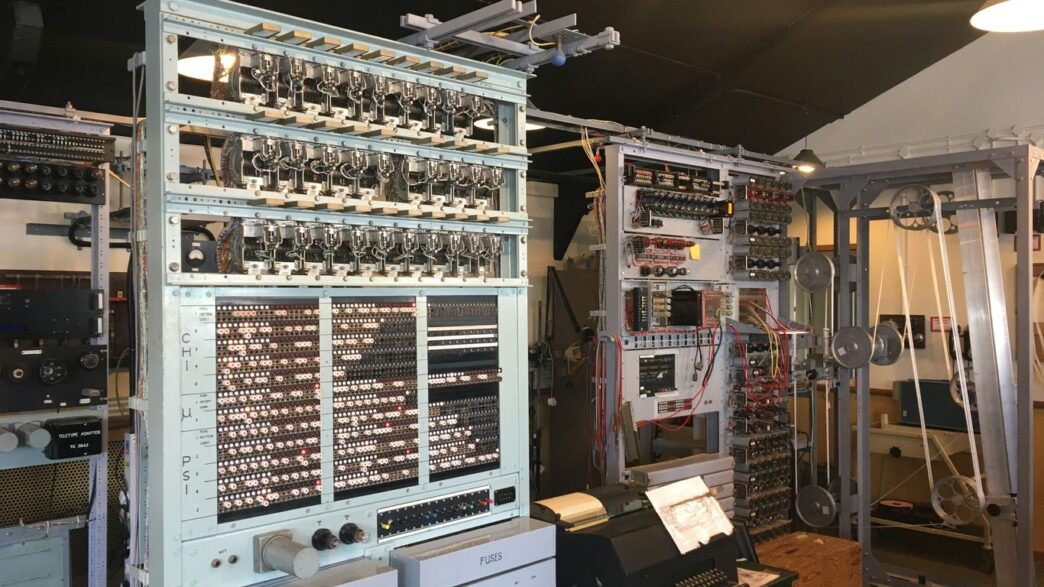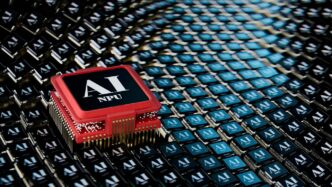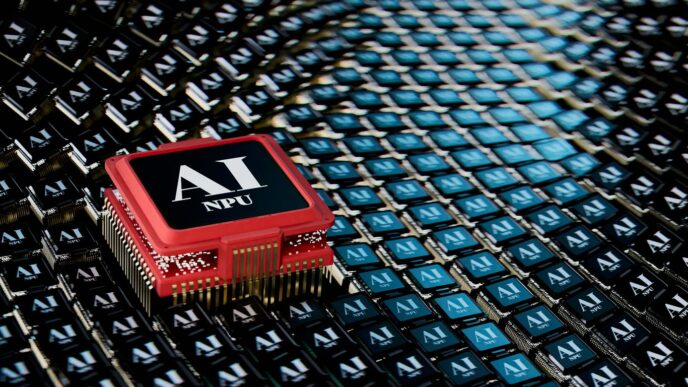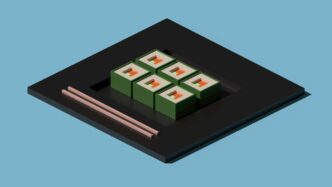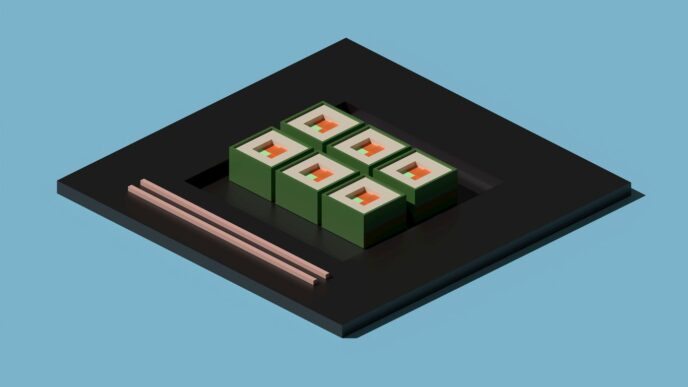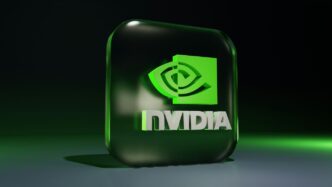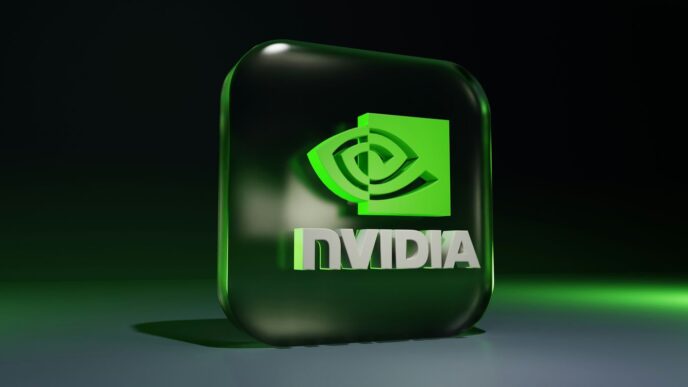Thinking about quantum computers? You might be wondering about the cost. Quantum computer prices in 2025 are a hot topic, and it’s not as straightforward as buying a regular laptop. Several things affect how much you’ll pay, from the tech inside to how they’re made. We’ll break down what goes into the price tag and what you can expect to see as the technology develops.
Key Takeaways
- Quantum computer prices are shaped by hardware complexity, R&D costs, and manufacturing challenges.
- Expect a range of quantum computer prices in 2025, from entry-level systems to high-end processors.
- Quantum Computing as a Service (QCaaS) will make quantum accessible through cloud platforms with subscription models.
- The cost of quantum computers will vary based on their intended applications, like scientific research or financial modeling.
- Total ownership cost includes not just the initial price but also maintenance, operational expenses, and integration.
Factors Influencing Quantum Computer Prices
So, why are quantum computers so darn expensive? It’s not just one thing, really. A bunch of different elements come together to make these machines cost a pretty penny. The complexity of building and operating them is a major driver of cost. Think about it – we’re talking about manipulating matter at its most basic level, which is no small feat.
Hardware Complexity and Scale
Building the actual quantum hardware is incredibly difficult. You need specialized materials, super-precise manufacturing, and environments that are almost perfectly isolated from any disturbance. Even a tiny bit of heat or vibration can mess up the delicate quantum states. The more qubits you want, the harder and more expensive it gets to build and control them. It’s like trying to build a skyscraper out of incredibly fragile glass – everything has to be just right.
- Qubit Count: More qubits generally mean a higher price tag because it’s harder to make them stable and interconnected.
- Qubit Quality: Not all qubits are created equal. High-fidelity qubits that maintain their quantum state for longer are more expensive to produce.
- Connectivity: How qubits talk to each other matters. Advanced connectivity schemes add to the manufacturing challenge and cost.
- Cooling Systems: Many quantum computers need to operate at temperatures near absolute zero. The cryogenic systems required for this are complex and costly.
Research and Development Investment
Companies pouring money into quantum computing aren’t just building machines; they’re also investing heavily in figuring out how to build better ones. This R&D involves a lot of trial and error, smart people, and expensive equipment. Think of all the scientists and engineers working on new algorithms, error correction techniques, and ways to scale up these systems. That brainpower and experimentation don’t come cheap, and those costs get passed on.
Manufacturing and Supply Chain Costs
Because quantum computers are so new and specialized, the supply chain for their components is still pretty small. This means fewer suppliers, less competition, and higher prices for the unique parts needed. The manufacturing processes themselves are also very specialized, often requiring custom-built machinery and highly trained technicians. It’s not like buying parts off the shelf for your PC; these are custom-made, cutting-edge components that are expensive to produce in small batches.
Current Quantum Computer Price Ranges
So, you’re curious about what a quantum computer actually costs right now? It’s not exactly like popping down to your local electronics store for a new laptop, that’s for sure. The prices are all over the place, and honestly, it depends a lot on what you’re looking for. We’re talking about systems that are still very much in the research and development phase for many organizations.
Entry-Level Quantum Systems
When we talk about ‘entry-level’ in the quantum world, we’re not talking about something a hobbyist can afford. These are typically systems designed for academic institutions or smaller research labs. They might have a limited number of qubits, say, in the range of 5 to 20, and might not be fault-tolerant. Think of them as the early prototypes. These systems can still set you back anywhere from $100,000 to $1 million. It’s a significant investment, but it gets you access to the cutting edge for specific, smaller-scale quantum experiments.
Mid-Tier Quantum Computing Solutions
Moving up a notch, we find mid-tier solutions. These are the machines you might see in larger research facilities or companies that are serious about exploring quantum applications. They’ll likely have more qubits, perhaps in the 20 to 50 range, and might offer better coherence times and error correction capabilities. The price point here jumps considerably. You’re probably looking at somewhere between $1 million and $5 million. These machines are capable of tackling more complex problems, but they still require specialized knowledge to operate and maintain.
High-End Quantum Processors
At the top end of the spectrum are the high-performance quantum processors. These are the big players, often developed by major tech companies or government-funded initiatives. We’re talking about systems with hundreds or even thousands of qubits, aiming for fault tolerance and tackling truly challenging problems in areas like materials science or drug discovery. The cost for these is astronomical, easily ranging from $10 million to upwards of $50 million, and potentially much more. These aren’t systems you buy off the shelf; they are massive projects requiring dedicated infrastructure and teams of experts.
Projected Quantum Computer Price Trends for 2025
So, what’s the deal with quantum computer prices heading into 2025? It’s a bit of a moving target, but we’re seeing some interesting shifts. The big story is that while the cutting edge will still cost a pretty penny, the overall cost of accessing quantum computing power is likely to become more manageable for a wider range of users. It’s not like buying a new laptop, but things are definitely trending in a more accessible direction.
Anticipated Cost Reductions
Why the potential drop in prices? A few things are at play. For starters, as the technology matures, we’re seeing improvements in manufacturing. Think about how much early computers cost compared to what we have now. The same kind of scaling is happening, albeit at a much faster pace, with quantum hardware. Plus, more companies are getting into the game, and competition usually drives prices down. We’re also seeing better ways to build and control qubits, which are the basic building blocks of quantum computers. Less complex manufacturing and more efficient designs mean lower costs.
Emergence of Quantum Computing Services
One of the most significant trends is the rise of quantum computing as a service (QCaaS). Instead of buying a whole quantum computer – which, let’s be honest, is out of reach for most – companies are increasingly renting time on these machines through the cloud. This means you pay for what you use, much like your electricity bill. This model makes quantum computing accessible without the massive upfront investment. We’re seeing more providers offering different tiers of service, from basic access for experimentation to high-performance computing for complex problems.
Impact of Technological Advancements
New breakthroughs are constantly happening. Researchers are finding ways to make qubits more stable and less prone to errors. This means we might need less complex and costly error correction systems in the future. Also, different types of quantum computing hardware are being explored, like those based on trapped ions or photonic systems. As these technologies mature and prove their worth, they could offer more cost-effective alternatives to current superconducting qubit approaches. It’s a dynamic field, and what seems expensive today might be standard tomorrow.
The Role of Quantum Computing as a Service (QCaaS)
So, you’re hearing a lot about quantum computers, and maybe you’re thinking, "Great, but how do I actually use one?" That’s where Quantum Computing as a Service, or QCaaS, comes in. It’s basically the cloud for quantum computing. Instead of buying a super expensive, complex quantum machine yourself, you can access quantum processing power over the internet. This makes quantum technology way more reachable for businesses and researchers who don’t have the massive budgets or specialized staff to manage their own hardware.
Accessibility Through Cloud Platforms
Think about it like this: most of us don’t own supercomputers in our homes, right? We use cloud services for storage, software, and even regular computing power when we need it. QCaaS applies the same idea to quantum. Major cloud providers are setting up partnerships and offering access to various quantum hardware. This means you can experiment with quantum algorithms, run simulations, and explore potential applications without needing a dedicated quantum lab. It’s a game-changer for democratizing access to this cutting-edge technology. You can often try out different types of quantum processors from different companies, all through a single cloud interface. This lets you see which hardware might be best suited for your specific problem.
Subscription Models and Usage-Based Pricing
How do you pay for this? Well, it’s not usually a one-time purchase. QCaaS typically works on subscription models or pay-as-you-go plans. You might pay a monthly fee for a certain amount of access, or you could be charged based on how much quantum processing time you use, how many qubits you access, or the complexity of the tasks you run. This flexible pricing structure is a big deal. It means you can start small and scale up as your needs grow or as you get more comfortable with quantum computing. It’s a lot less risky than investing millions in hardware upfront. Plus, these models often include access to software tools and support, which is pretty handy.
Cost-Effectiveness of QCaaS
Let’s be real, building and maintaining a quantum computer is incredibly expensive. We’re talking about specialized cooling systems, extreme precision engineering, and highly trained personnel. For most organizations, the cost of owning a quantum computer is just out of reach. QCaaS sidesteps all of that. By sharing the costs of the hardware and infrastructure among many users, cloud providers can offer access at a fraction of the price of ownership. This makes quantum computing feasible for a much wider range of applications, from academic research to specific industry problems in finance, medicine, and materials science. It’s the most practical way for most people to get their hands on quantum power right now.
Quantum Computer Pricing for Different Applications

So, you’re wondering how much a quantum computer costs, but the price tag really depends on what you want to do with it. It’s not a one-size-fits-all situation, not by a long shot. Think of it like buying a car; a basic sedan is way cheaper than a souped-up race car, right? Quantum computing is kind of the same, but with way more complex parts.
Scientific Research and Simulation Costs
For folks in pure science, like physicists or chemists running complex simulations, the price can be pretty steep. These machines need to be top-notch, handling massive datasets and intricate calculations that regular computers just choke on. You’re looking at systems designed for maximum accuracy and stability.
- High-fidelity qubit counts: More qubits, and better quality ones, mean a higher price.
- Specialized cooling systems: Keeping qubits stable often requires super-cold environments, adding to the cost.
- Advanced error correction: Essential for reliable scientific results, this tech doesn’t come cheap.
These setups are often custom-built or require significant modifications, pushing the price into the millions, sometimes tens of millions, of dollars. It’s an investment for groundbreaking discoveries.
Financial Modeling and Optimization Expenses
In the finance world, quantum computers are being eyed for things like portfolio optimization, risk analysis, and fraud detection. The demands here are a bit different. While accuracy is important, speed and the ability to handle a large number of variables simultaneously are often prioritized.
- Quantum Annealers: These are a type of quantum computer particularly good at optimization problems, and they can sometimes be more affordable than universal gate-based quantum computers.
- Hybrid Quantum-Classical Approaches: Often, financial institutions use a mix of quantum and classical computing, which can influence the overall system cost.
- Software Integration: Getting the quantum hardware to talk to existing financial software adds another layer of expense.
Prices for financial applications can range from hundreds of thousands for specialized, smaller systems or cloud access, up to several million for dedicated, powerful machines. It’s about finding the right balance between performance and cost for specific financial tasks.
Drug Discovery and Materials Science Pricing
This is where quantum computing really shines, promising to revolutionize how we find new medicines and create advanced materials. Simulating molecules and their interactions is incredibly complex, and quantum computers are uniquely suited for it.
- Molecular Simulation Capabilities: The core function here requires precise control over qubits to model atomic and molecular behavior.
- Data Handling and Analysis: Processing the vast amounts of data generated from these simulations needs robust infrastructure.
- Custom Algorithm Development: Often, specific algorithms need to be developed or adapted, adding to the R&D cost.
Companies in this sector might be looking at price tags anywhere from a few million dollars for access to powerful cloud-based quantum resources to tens of millions for proprietary, on-premise systems. The potential return on investment, however, in terms of faster drug development or novel material creation, can justify these significant costs.
Understanding the Total Cost of Ownership
So, you’re looking at quantum computers, and the sticker price is one thing, but there’s more to it than just that initial number. We need to talk about the whole picture, the total cost of ownership. It’s not just about buying the machine; it’s about what it takes to keep it running and useful.
Initial Purchase vs. Subscription Fees
This is the big one, obviously. Buying a quantum computer outright is a massive capital expense. We’re talking millions, maybe tens of millions, for even a moderately capable system. It’s like buying a skyscraper – a huge upfront commitment. On the flip side, many companies are leaning towards subscription models, especially through cloud services. You pay a monthly or yearly fee, and you get access to quantum resources. This spreads the cost out, making it much more manageable for businesses that don’t have unlimited budgets. Think of it like renting an apartment versus buying a house. Renting is cheaper month-to-month, but you never own it. Buying is expensive upfront, but it’s yours.
Maintenance and Operational Expenses
Quantum computers are not like your average laptop. They need specialized environments. We’re talking about extreme cooling, often near absolute zero, which uses a lot of energy. Then there’s the upkeep. These machines are incredibly sensitive. You’ll need highly trained technicians to keep them calibrated and running smoothly. Breakdowns can be costly, not just in repair bills but also in lost research or computation time. It’s a bit like owning a Formula 1 car; it needs constant, expert attention and specialized fuel.
Integration and Training Costs
Getting a quantum computer up and running in your existing infrastructure isn’t plug-and-play. You’ll likely need to adapt your current systems to interface with the quantum hardware. This can involve significant IT work. Plus, your team needs to know how to use it. Quantum programming is a whole different ballgame. You’ll need to invest in training your scientists and engineers, or hire new talent with quantum expertise. This training isn’t cheap, and it takes time. It’s like buying a new piece of advanced scientific equipment; you don’t just put it in the lab, you need people who know how to operate it and interpret the results.
So, What’s the Bottom Line on Quantum Computer Costs?
Looking ahead to 2025, it’s clear that quantum computers are still a big investment. While prices won’t be dropping to consumer levels anytime soon, we’re seeing a trend where access is becoming more varied. Instead of buying a whole machine, more companies will likely rent time on quantum systems or use cloud services. This makes the technology reachable for more businesses without the massive upfront cost. Keep an eye on how these access models develop, as they’ll be key to how widely quantum computing is adopted in the coming years. It’s an exciting space to watch, even if you’re not buying one yourself just yet.
Frequently Asked Questions
How much does a basic quantum computer cost in 2025?
In 2025, a basic quantum computer can cost anywhere from a few hundred thousand to a few million dollars, depending on its size and abilities. These prices can change based on the company’s technology and the number of qubits.
Why are quantum computers so expensive?
Quantum computers are pricey because they use special parts and need advanced technology to work. Building and keeping them running takes a lot of research, skilled people, and unique tools.
Can I use a quantum computer without buying one?
Yes, you can use quantum computers through cloud services. Many companies let you rent time on their quantum machines, so you don’t have to buy the whole system.
Will quantum computers get cheaper in the future?
Experts believe quantum computers will get cheaper as technology improves and more companies start making them. As more people use them, prices should drop, just like with regular computers.
What are the main costs besides buying the computer?
Besides the main price, you also have to think about costs for running, fixing, and updating the computer. Training people to use it and connecting it to other systems can also cost money.
Are there different prices for different uses?
Yes, the price can change based on what you use the quantum computer for. For example, using it for science research, banking, or finding new medicines can all have different costs, depending on how much computing power you need.

